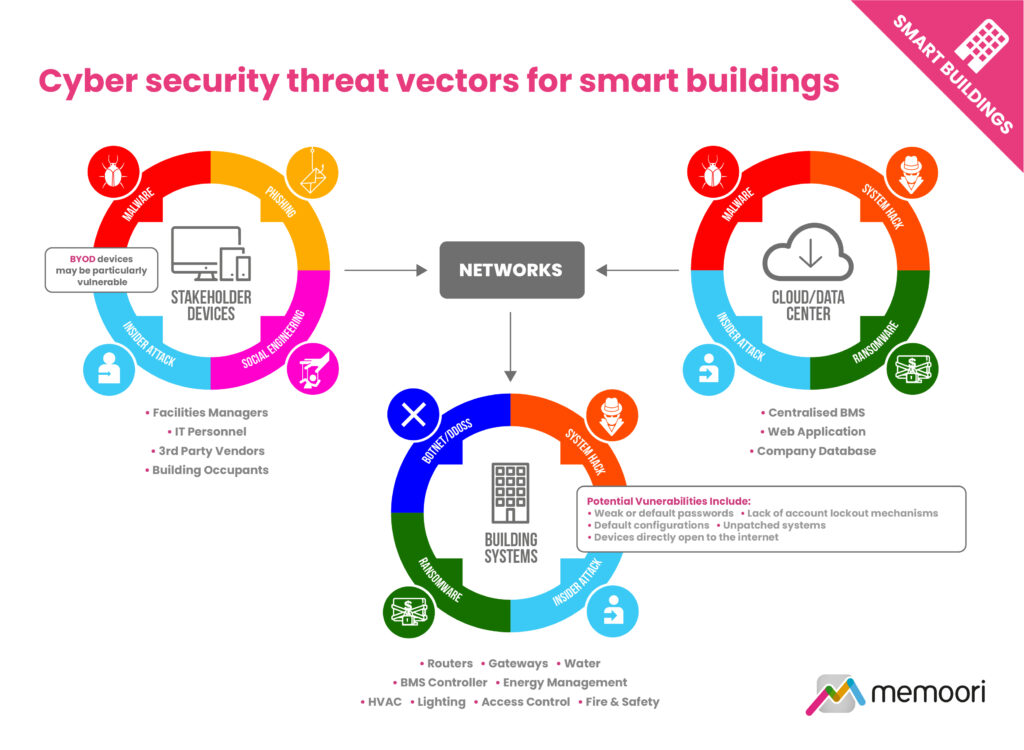Cyber security consistently ranks as one of the top 3 concerns worrying organizations that are considering investment in IoT or digital transformation projects.
Spending on cyber security has surged in recent years, driven by major trends including the rise in ransomware attacks, a series of high-profile breaches and the massive security challenges posed by the transition to more remote work and the accelerated push for digital transformation.
Our new report estimates that in 2021, global revenues for smart building cyber security hardware, software and services reached $4.33 billion, and we expect the market to achieve a compound annual growth rate (CAGR) of 12.2% over the next five years, rising to a combined value of $8.65 billion by 2027.
A significant finding from our research is that rising levels of cyber risk posed by IoT devices and connected smart building systems is having a significant adverse effect on building owners’ ability to effectively insure their assets. Some industry observers have even stated that “the lack of effective cyber cover is rapidly becoming a leading barrier to smart building adoption moving forward”.
A large proportion of smart building owners and operators could be totally unaware that they have no legitimate insurance cover for their smart building systems and would be fully liable for all associated costs in the event of a cyber breach.

For the implementation of any new technology, cyber security needs to be considered throughout the design and build process, embedding the right security/privacy controls and risk mitigation solutions at each stage of development. Meeting the latest cyber security standards and getting IoT products officially certified can provide a clear competitive advantage for vendors when tendering for new business.
Now in its 2nd Edition and with 187 pages and 37 charts, this brand new 2022 report will be of value to all those engaged in managing, operating and investing in commercial smart buildings (and their advisers) around the world. In particular, those wishing to understand the impact of cyber security on commercial real estate will find it most useful.
New for 2022, the report now includes at no extra cost, a spreadsheet containing the data from the report and a graphics pack with high-resolution charts. For more information, visit; https://memoori.com/portfolio/cyber-security-in-smart-commercial-buildings-2022-to-2027/



